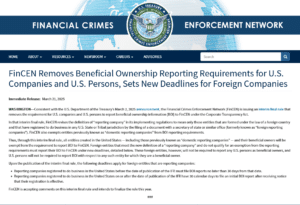One of the most-often missed taxes are those connected with household employees. The complexity of payroll tax calculations in combination with traditional low wages has led too many taxpayers to simply blow off these taxes with the hope that the Internal Revenue Service and the Social Security Administration will fail to follow up.
If you hired someone to do household work (including child care), that worker is your employee if you can control not only what work is done, but also how it is done. If the worker is your employee, it does not matter whether the work is full-time or part-time or that you hired the worker through an agency or from a list provided by an agency or association. It also does not matter whether you pay the worker on an hourly, daily or weekly basis, or by the job.
You are NOT required to withhold federal income tax from wages you pay a household employee. You should withhold federal income tax only if your household employee asks you to withhold it and you agree. The employee must give you a completed Form W-4, Employee’s Withholding Allowance Certificate. If you and your employee have agreed to withholding, either of you may end the agreement by letting the other know in writing. If you agree to withhold federal income tax, you are responsible for paying it to the Internal Revenue Service.
Although, in most cases, you will not need to withhold federal income tax for a household employee, you may need to withhold and pay social security and Medicare taxes, pay federal unemployment tax, or both. If you pay cash wages of $1,900 (in 2015) or more to any one household employee, you are required to withhold and pay social security and Medicare taxes on those wages.
- The taxes are 15.3% of cash wages
- Your employee’s share is 7.65% (you can choose to pay it yourself and not withhold it)
- Your share as an employer is 7.65%
For 2016, the Social Security Administration has announced that cash wages paid by an employer for domestic service in the employer’s private household is subject to FICA tax (often referred to as “nanny tax”) if the amount of wages paid during the year is more than $2,000 (up from the $1,900 threshold for 2015). Please note again that the dollar threshold applies separately to each household employee.
With respect to federal unemployment tax, if you pay total cash wages of $1,000 or more in any calendar quarter of 2015 to household employees, you must pat federal unemployment tax.
- The tax is 6% of cash wages
- Wages over $7,000 a year per employee are not taxed
Note, that paying wages subject to federal unemployment tax is also likely to qualify for state unemployment taxes.
The payment of cash wages to a household employee requires the filing of certain income tax forms intended to allow for the federal and state government’s record-keeping needs. Most common among these are Form W-2, Wage and Tax Statement for each year, as well as Form W-3, Transmittal of Wage and Tax Statements and Schedule H, (Form 1040), Household Employment Taxes. Alternatively, taxpayers may use business payroll tax returns instead of Schedule H, but such an alternative is more complex.
Simply dismissing taxpayer obligations to collect and pay household employee taxes is not an appropriate strategy and one that can lead to much difficulty, if identified later by the tax authorities. Additionally, disgruntled employees leaving have been known to bring actions against prior employers for failing to pay the required taxes. As such, strict compliance with these rules, as one would do with any other federal tax law, is the best way to go.
For more information on who qualifies for employee status under these rules, please see Internal Revenue Service Publication 926, Household Employer’s Tax Guide.
Should you have any questions regarding the tax obligations associated with the payment of household employee taxes, contact Bob Grossman or Don Johnston at 412.338.9300.







